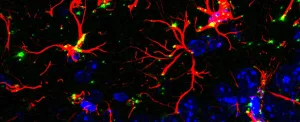MIT Uncovers the Impact of High-Fat Diets on Insulin Resistance
A new study from MIT sheds light on how consuming a diet high in fat can trigger changes in enzymes, ultimately leading to insulin resistance and increased oxidative stress within the body. These findings open doors for exploring potential strategies to counteract these harmful effects.
The Enzyme Connection
Researchers have pinpointed specific enzymes that are altered by high-fat diets. These alterations disrupt normal metabolic processes, causing cells to become less responsive to insulin. Insulin resistance is a key factor in the development of type 2 diabetes and other metabolic disorders.
Oxidative Stress and Cellular Damage
In addition to insulin resistance, the study revealed that high-fat diets contribute to oxidative stress. This occurs when there is an imbalance between the production of free radicals and the body’s ability to neutralize them. Oxidative stress can damage cells and tissues, further exacerbating health problems.
Potential Interventions
While the study highlights the negative impacts of high-fat diets, it also suggests avenues for intervention. Understanding the specific enzymes involved could lead to the development of targeted therapies or dietary strategies to mitigate the effects of high-fat consumption. These interventions might include:
- Developing drugs that modulate the activity of the identified enzymes.
- Identifying specific nutrients or compounds that can counteract oxidative stress.
- Designing dietary guidelines that emphasize a balanced intake of fats, carbohydrates, and proteins.
Final Overview
This MIT study provides valuable insights into the complex relationship between high-fat diets, enzyme function, insulin resistance, and oxidative stress. By understanding these mechanisms, researchers can pave the way for innovative approaches to prevent and treat metabolic disorders associated with high-fat consumption. Further research is needed to translate these findings into practical interventions for improving public health.




+ There are no comments
Add yours